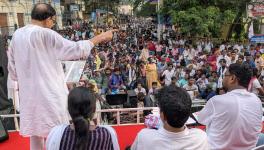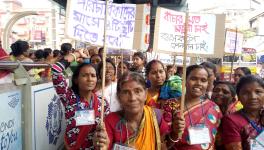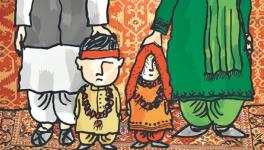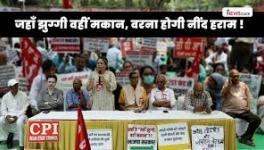‘Threat Culture’ is Killing Bengal’s Medical Education
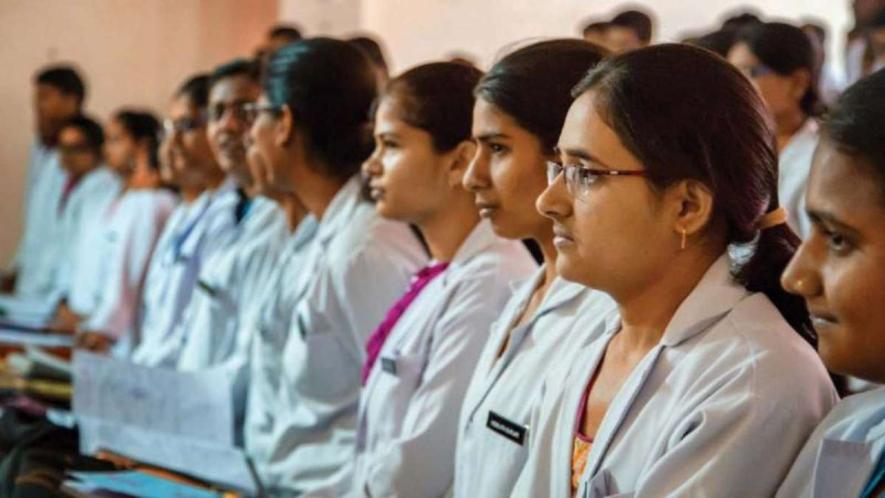
Representational Image. Image Courtesy: PTI
In recent years, West Bengal's medical colleges have been embroiled in a toxic culture of intimidation and fear, leading to deep concerns about the quality of education and the mental well-being of both students and faculty.
Recently, the College of Medicine and JNM Hospital in Kalyani, Nadia, brought these issues into focus following a 42-day agitation by junior doctors after the recent rape-murder of a 31-year-old colleague at RG Kar Medical College and Hospital. The agitation forced the administration to take serious note of the deep-rooted problems, shedding light on the prevailing ‘threat culture’ in these institutions.
The recent suspension of 40 students from the College of Medicine and JNM Hospital in Nadia is a significant moment in the ongoing fight against this toxic culture. The suspended students, reportedly affiliated to the Trinamool Congress Chhatra Parishad, have been accused of terrorising their peers. The allegations against them range from intimidation to academic sabotage, with protesting students claiming that these groups created an environment of fear that “severely impacted” their education and mental health. The
suspensions, while a step forward, are only the tip of the iceberg in addressing a deeply entrenched issue.
Reportedly, West Bengal's medical institutions have in recent times been suffering from an authoritarian pattern that allows even junior students affiliated to certain political factions to exert influence over their peers and even seniors. This tends to create a climate where bullying, coercion, and harassment are normalised, particularly in the case of junior doctors and students who often find themselves at the mercy of these elements.
The power dynamics within these colleges are reportedly often exacerbated by the involvement of certain politically affiliated associations, particularly those linked to the ruling party. The presence of such groups, say many insiders, has led to a certain type of politicisation of campus life, where dissent or opposition to the dominant political group can often result in threats, academic isolation, or even physical violence.
Talking to this reporter, a source on condition of anonymity, said they were “currently in a situation in the medical colleges across the state where if an intern or a second-year student belongs to certain groups of vested interests, they openly threaten not only their seniors, but also their teachers.”
“We were always proud of the earlier culture in medical colleges where seniors used to mentor juniors. However, over the past few years, especially in the past five years, this has completely reversed,” the source said.
The junior doctors’ protest, sparked by the brutal assault and death of Tilottama (as the RG Kar rape-murder victim is referred to), has brought the issue of campus safety and political intimidation to the forefront. The agitation by junior doctors, which lasted for over a month, has exposed the lack of accountability within these institutions, as well as the alleged complicity of college administrations in maintaining the status quo.
"As a doctor, I’ve witnessed numerous complaints and incidents over the years, yet little to no action has been taken against those responsible for perpetuating this culture of fear. It took a high-profile case like Tilottama to finally prompt the administration, but the deeper issues within these institutions still remain unaddressed," said another junior doctor, requesting anonymity.
The recent suspension of 40 students at the College of Medicine and JNM Hospital came only after a united petition was submitted by 32 students, pleading with the administration to take action. This lack of proactive measures points to a larger problem—many allege that college authorities either turn a blind eye to the issue or are directly complicit, particularly when political groups are involved.
The investigation that led to these suspensions was only launched after significant public pressure, and even then, it was limited in scope. While the Anti-Ragging Committee and College Council voted to suspend the accused students, the step came only after years of neglect and inaction.
“As a healthcare worker, I've seen countless students hesitate to come forward after facing intimidation or harassment and fearing retaliation not just from their peers, but from the very administration that is meant to protect them. This culture of silence and fear has allowed the toxic environment to thrive far too long," said another source, preferring to remain anonymous.
Student unions affiliated with the ruling TMC have been accused of using their political influence to intimidate students and manipulate academic processes. The recent suspensions in Kalyani are a rare instance where political figures have faced consequences for their actions, but this issue is not limited to one institution.
Across the state, political interference has led to an environment where academic merit takes a backseat vis-à-vis political loyalty.
The role of political groups in medical colleges not only undermines the academic integrity of these institutions but also creates a hostile environment for students who wish to focus on their education.
As one junior doctor from the protest said, “We are here to learn and serve, not to become pawns in a political game.”
"As a nursing student in a public hospital, I can't help but feel the weight of this toxic culture on our mental health and professional growth. The fear of retaliation and the pressure to fit in with a section of senior students and political groups creates an environment filled with anxiety and burnout. In a field that’s already demanding, this hostile atmosphere leaves many of us doubting our future in medicine. It's heartbreaking to see our passion for healing overshadowed by such challenges," said another source.
This ‘toxic’ culture has created a situation where using mobiles for cheating and leaking question papers have become a norm, said Dr S K Roy, a surgeon in North Bengal Medical College.
Speaking to the media recently, Roy said, “When external examiners come, they say that the condition (here) is worse than that of Bihar.”
There is an urgent need for structural reform within West Bengal’s medical colleges. Transparent grievance redressal mechanisms must be put in place, and strict penalties should be imposed on those who engage in harassment or intimidation. Furthermore, political interference in academic institutions must be curtailed to restore focus on education and healthcare.
Without these reforms, the future of West Bengal’s healthcare system is at risk.
The writer is a Delhi-based freelancer who writes on health issues and medical discoveries. The views are personal.
Get the latest reports & analysis with people's perspective on Protests, movements & deep analytical videos, discussions of the current affairs in your Telegram app. Subscribe to NewsClick's Telegram channel & get Real-Time updates on stories, as they get published on our website.











